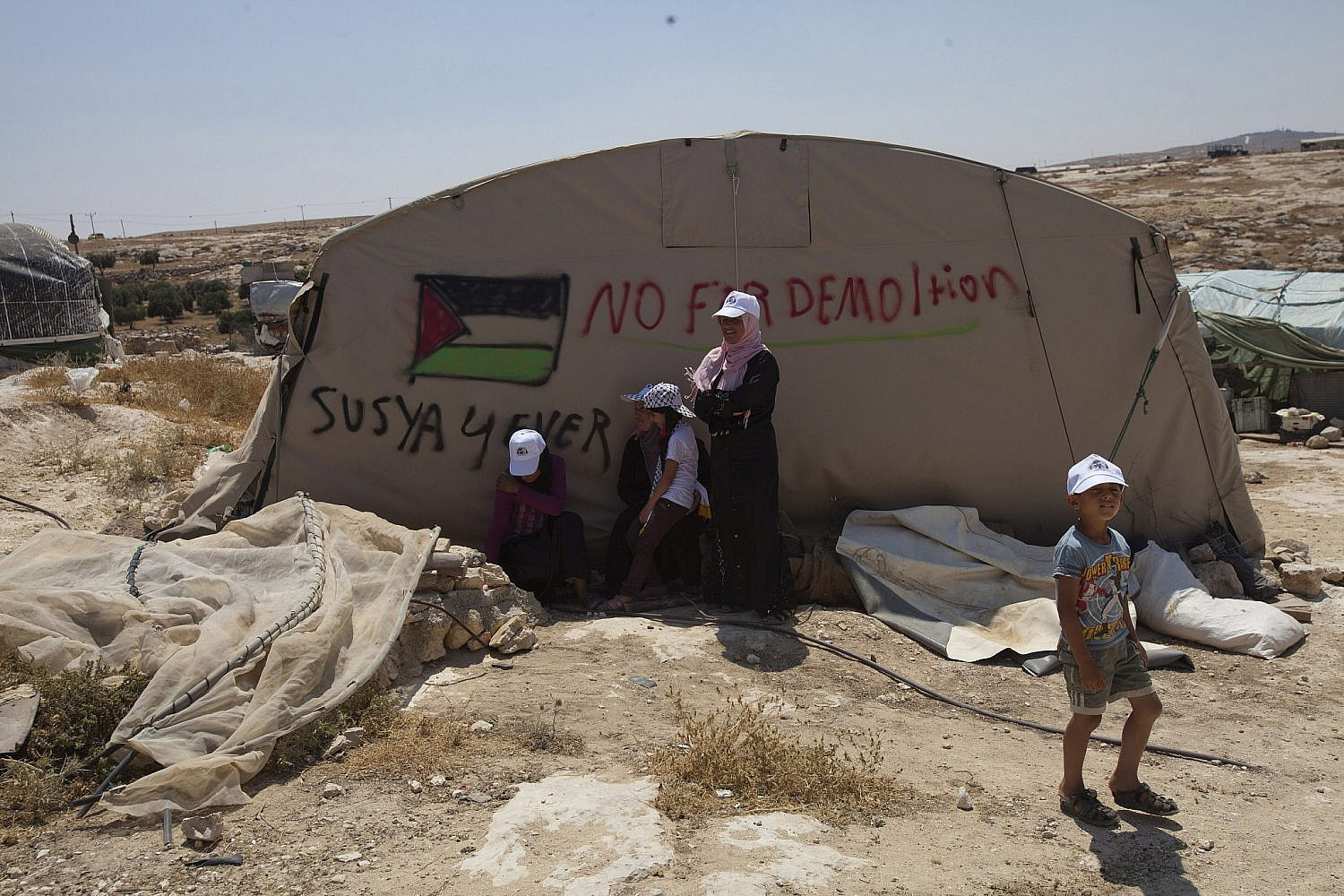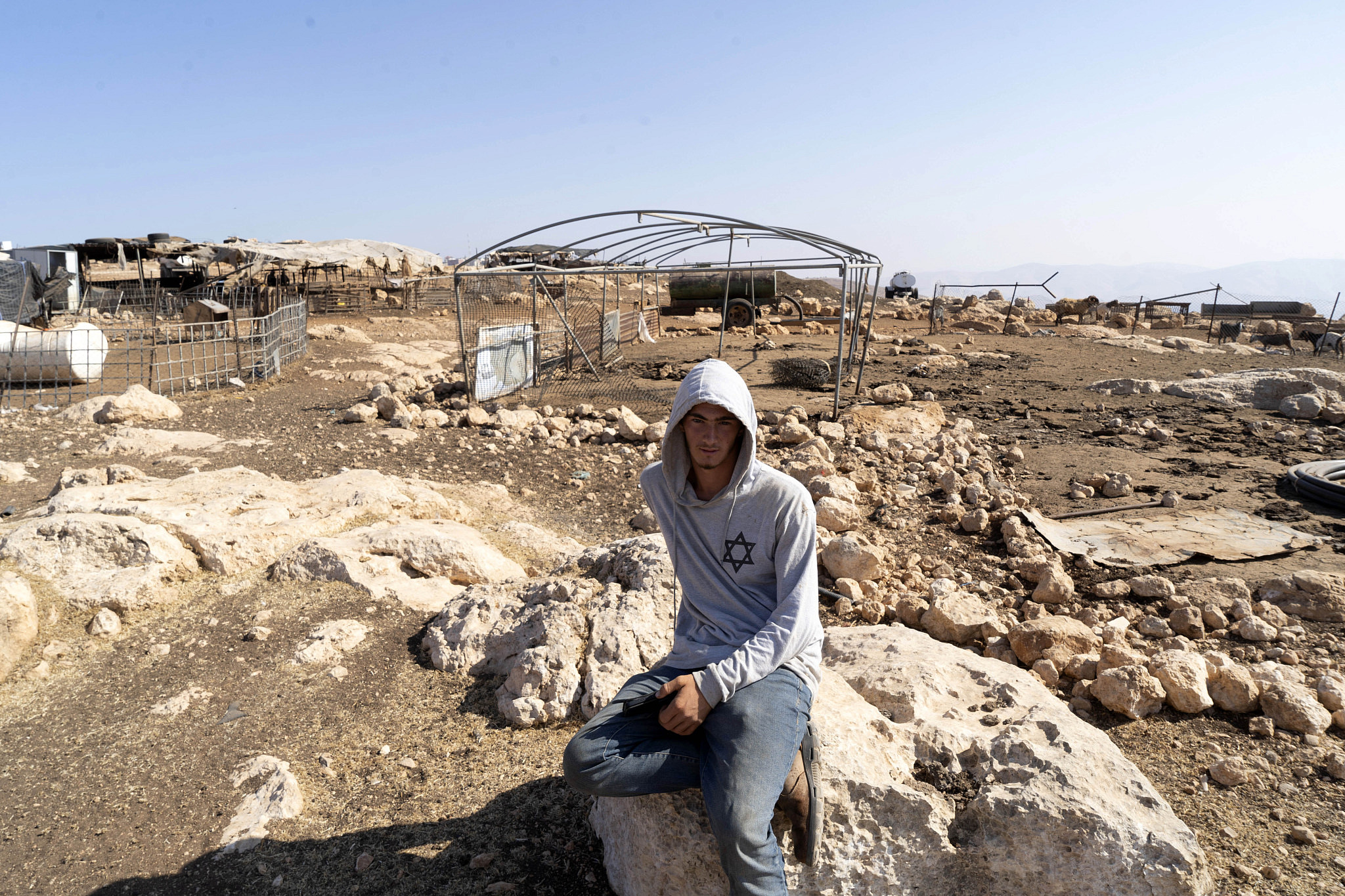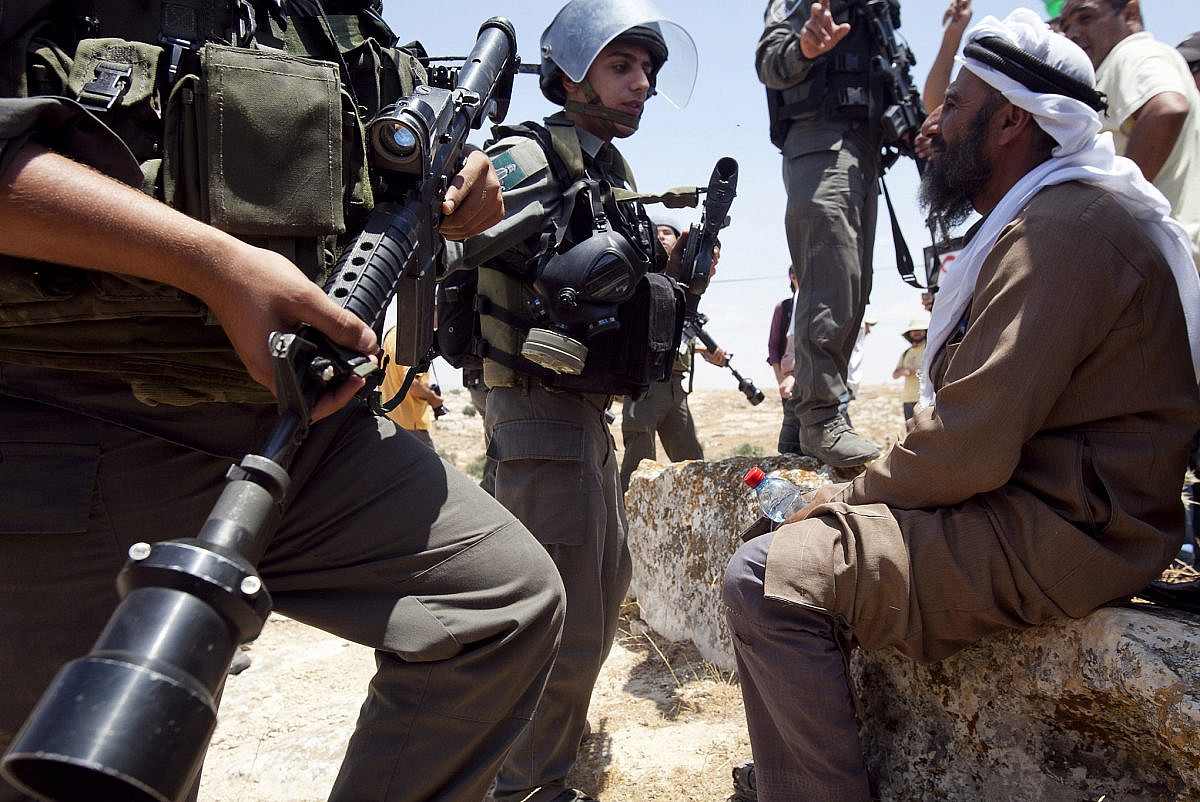Harassment and intimidation by Israeli settlers, often with a military escort, are hardly a new phenomenon for the Palestinians of Susiya, a small village in the Masafer Yatta region of the occupied West Bank. Since the war that began on Oct. 7, however, we’re seeing an alarming escalation — and it is increasingly difficult to distinguish between settlers and soldiers.
Throughout the past three weeks, settler-soldier militias have been raiding rural communities across the West Bank, assaulting Palestinian residents, and threatening them with more violence if they do not leave their homes. While the whole world is watching Israel’s assault on Gaza, the settlers have seized the opportunity to ramp up their attacks in an attempt to forcibly and systematically displace hundreds, and perhaps thousands, of Palestinians.
On Oct. 16, Israeli settlers and the army blocked every entrance to Susiya with large boulders, as well as the roads leading to the nearby city of Yatta, where the villagers go to buy food and supplies. A few days later, the Civil Administration — the bureaucratic arm of the Israeli occupation — came to open the road, but the settlers prevented them from doing so and forced them to leave. The settlers then began donning military uniforms and attacking Susiya’s residents more than ever before.
Ahmad Jaber Nawajah lives in Susiya with his wife and two daughters, aged 7 and 8. At 8 p.m. on Oct. 28, two masked settlers in army uniform broke into their home and started destroying their belongings and taking photos of everything. When the family protested, the settlers silenced them with shouts and threats; this lasted for 30 minutes.

At 11 p.m. a civilian car with a yellow Israeli license plate arrived at the entrance of the home, and five uniformed men — two of whom were masked — stepped out. They started searching around the outside of the house, and eventually broke into the family’s home again. The family woke up as the settlers started throwing things around and taking more photos. Nawajah’s daughters began to cry and scream. Out of panic and fear, one began vomiting and the other developed a nosebleed.
Eventually, the men finished photographing and grabbed Nawajah and his brother Muhammad, forcing them to leave the house and ordering them to sit on the ground about 130 feet away. Nawajah, who does not understand Hebrew, sat down on a rock instead of the ground, and one of the settlers started to beat him, grabbing him by the back of the neck and shoving his face into the ground. When Muhammad began to protest, the settlers began kicking and punching him all over his body.
One of the settlers then threatened the two brothers, telling them that they have 24 hours to leave their home, or they would come back, shoot them, and destroy their house.
At this point, Israeli military vehicles arrived at the scene and soldiers ordered Nawajah to produce his ID. He went home to retrieve it, while Muhammad explained to the soldiers that the settlers had beaten and threatened to kill them. The soldiers told Muhammad to be quiet and that they should go back into their homes. As Nawajah and Muhammad did so, the settlers repeated their threat, in front of the soldiers.
That same night, the settler militia raided several other homes and issued their threat to other families. The settlers have yet to return since that terrifying night, but the villagers are fearful that they could raid the village again at any moment.

Ever since settlers blocked the roads around Susiya, the villagers have had no way of getting to Yatta to buy food, feed for livestock, or medicine for the elderly. Older residents with medical issues such as diabetes are unable to get to the hospital. Residents are living in fear of what will happen if someone needs urgent care.
With shepherding being the village’s main livelihood, not being able to buy food for herds constitutes a fundamental threat. Moreover, this is coming after prime shepherding season, during which settlers and soldiers worked together for months to block access to most of the grazing land surrounding the village. The longer the roads remain closed, the greater the economic losses, and the higher the likelihood that the Palestinians will have to abandon their way of life.
“The economy of the village depends on the sheep,” said Yousef Nawajah, a shepherd from the village. “When we can’t go to Yatta to get food, we lose our livelihood, and are forced to sell our flocks. When we lose our sheep, I can’t get food for my family, I have no work. My family can’t find anything to eat.”
Most read on +972
Furthermore, the settlers and the army have systematically destroyed the water wells in the area, which provide around 60 percent of the village’s water supply. This is an intentional effort to force people off their lands, which, together with the fact that the residents can not bring water to the village via the roads, is causing large water scarcity and increases the risk of disease spreading, especially among children.
The same thing has been happening to many of the villages in Masafer Yatta since the start of the war. At least 13 Palestinian communities have already been forcibly displaced in their entirety since Oct. 7. On Monday night, settlers set fire to several houses in the village of Sfai.
If the closure of roads, the settler-soldier attacks and threats, and the lack of access to water and animal feed continue for much longer, the situation will devolve into a large-scale crime against humanity.




